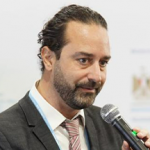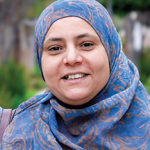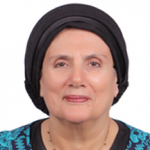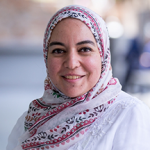Policy Dialogue on the Impact of the Russia-Ukraine Crisis on Children and Vulnerable Households in Egypt
FromDec 05, 2022 To Dec 06, 2022
Hybrid Event
Egypt is being significantly affected by the Ukraine crisis, especially through its dependence on Russian and Ukrainian wheat (previously 80% of total wheat imports). The crisis’ repercussions are visible in the macroeconomic context, the cost of living and poverty, food security and child nutrition, with possible amplified impacts on the most vulnerable populations, including poor and vulnerable communities, migrants, refugees, and asylum seekers. Arguably, inflation is the main channel through which people in Egypt have been affected by the conflict, especially in relation to food but also non-food items and services. These effects are even more significant given the socioeconomic stress brought on by the COVID-19 pandemic since 2020. Headline inflation was more than 15% in May 2022, the highest level in three years (CAPMAS). This compares to 8% in January. The continued rise in global food prices has been the main driver of this increase. Food price inflation in Egypt was nearly double the overall level of inflation in May 2022 (28% according to CAPMAS). The impacts have been further compounded by the recent loss in the value of the Egyptian Pound.
To respond to the effects of the Ukraine conflict and mitigate its negative impact, especially on the poorest and most vulnerable populations, countries should adopt a set of monetary, fiscal, and social policy responses. Shock-responsive social protection programs are particularly vital to mitigating the negative impacts of these developments. Notably these responses should be holistic in their approach to address multidimensional poverty in areas, including, nutrition, health, and protection.
This policy roundtable series is jointly organized by the Economic Research Forum and UNICEF Egypt to inform and facilitate policy dialogue around the impact of the Ukraine crisis on children and families in Egypt and accordingly propose evidence-based policy recommendations.
Policy Dialogue Organization and Setting
Over two days, this policy dialogue will aim to discuss evidence on the impact of the Ukraine crisis on the Egyptian economy, especially in relation to the significant effect on households and children. The dialogue will then seek to identify the policy measures required to best support children and families, with particular focus on how to enhance shock responsive social protection systems that are able to respond to crises.
Each day will start with a presentation of the policy brief prepared in collaboration with UNICEF. The policy brief aims to tackle the issues of disruption in imports caused by the conflict on food shortages and high prices of essential commodities, including wheat, edible oils, and fuel. Beyond the immediate impact of the crisis, the policy brief also investigates the long-term consequences of the crisis on social cohesion and what the governments in the region, especially Egypt, can do to mitigate and manage these impacts. The presentation of the policy brief will be followed by a panel of experts to provide insights on existing as well as desired policy interventions from different stakeholders’ perspectives as well as enhance the policy recommendations of the Policy Brief.
The first day is dedicated for researchers, scholars and CSOs from relevant professional and academic fields to review how the impact of the crisis can best be captured and analyzed from the macro and micro perspectives and propose policy recommendations.
The second day is dedicated to government and development partners to review the evidence available and propose policy solutions as the way forward, reflecting policymakers’ perspectives on the crisis. The outcome of the policy dialogues would be a policy paper to mitigate the negative impacts of the crisis on children and families in Egypt.
Agenda
Day 1
Date
05/12/2022
Location
Hybrid event
Time
From 11:00 am To 1:30 pm
Speakers

Research Fellows
Ibrahim Elbadawi
Development Studies & Research Forum, Dubai

Speakers
Jeremy Hopkins
UNICEF Representative in Egypt

Speakers
Luigi Peter Ragno
Chief, Social Policy, UNICEF Egypt

Research Fellows
May Gadallah
Associate Professor, Departments of Statistics, Cairo University

Speakers
Nesma Mamdouh Amer
Senior Statistician, Economic Research Forum

Speakers
Sherine Al-Shawarby
Professor of Economics, Cairo University

Research Fellows
Chahir Zaki
Chaired Professor of Economics, University of Orléans

Speakers
Alison Fahey
Executive Director, J-PAL Middle East and North...

Research Fellows
Heba El-Laithy
Professor of Statistics at Cairo University’s Faculty...
Videos
Agenda
Day 2
Date
06/12/2022
Location
Hybrid event
Time
From 11:00 am To 1:30 pm
Speakers

Research Fellows
Ibrahim Elbadawi
Development Studies & Research Forum, Dubai

Speakers
Jeremy Hopkins
UNICEF Representative in Egypt

Research Fellows
May Gadallah
Associate Professor, Departments of Statistics, Cairo University

Speakers
Nesma Mamdouh Amer
Senior Statistician, Economic Research Forum

Speakers
Samman Thapa
Regional Adviser on Social Policy and Social...

Speakers
Mervat Sabreen
Assistant Minister for Protection and Social Safety...

Speakers
Scott Standley
Economist, UN Resident Coordinator’s Office in Egypt

Research Associates
Imane Helmy
Senior Economist at World Bank’s Poverty and...

